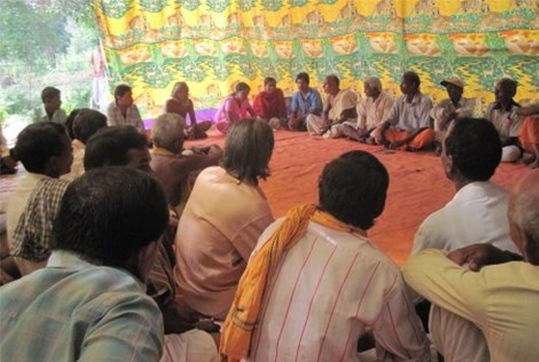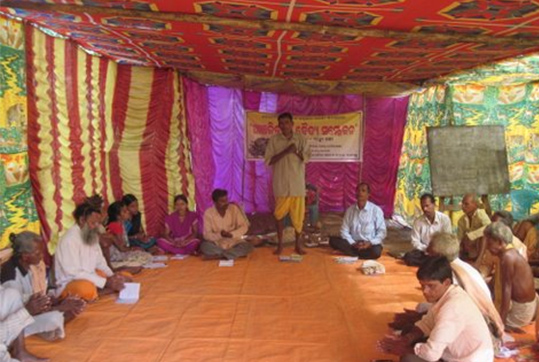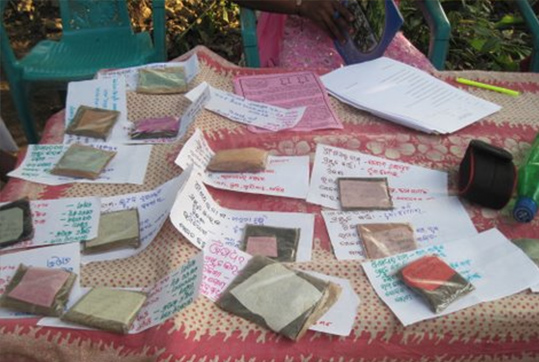
SANCHARR and Grameen Dhanwantari Baidya Sangha (Rural Herbal Practitioners Association) organised a herbal practitioner’s (baidya) convention on conservation of traditional healing practices and medicinal plants in Phalpaju village of Nayagarh district in Odisha on 25th November 2011. The event was held to commemorate the birthday of Lord Dhanwantari, the god of herbs. The main thrust areas of the convention were conservation, livelihood, and the current threat to traditional medicinal knowledge due to unavailability of herbs in forest areas, and the related risk of disappearance of the practice.

The Baidyas displayed and presented their medicinal preparations using various herbs. All the baidyas shared their experiences on common maladies, types of herbs and their medicinal properties, as well as the issues they have been facing in recent times. Some of the common problems stated were:

Some of the key points brought up by the participants that included SRUTI Fellows Prafulla Mishra and Rashmi Ranjan of SANCHARR, Basanta Mohapatra (President of Gramin Dhanwantari Baidya Sangh) and Suresh Kumar Mishra (social worker and journalist):
- Decrease in availability of herbs, posing a threat for rural/ traditional treatment of common ailments
- Unlawful transportation of herbs
- Irregular payment by patients
- No records of patients treated
- No Govt. recognition or social security
- Marketing opportunities of herbal products
- Lack of technological inputs
- Development of state-level linkages
- Dept. of Science & Technology – National Institute of Nutrition (ICMR), National Afforestation & Eco-Development Board – Ministry of Environment and Forests, National Medicinal Plant Board – Department of AYUSH – Ministry of Health & Family Welfare and the Forest Rights Act 2006 have all provided legal space for baidyas in the field of recognition, collection, conservation, marketing, processing, etc.
- MGNREGA funds can be mobilized for promotion of herbal gardens with the consultation of Panchayat representatives
- Medicine processing and a marketing units can be initiated for products made by baidyas
- Regular camps and meetings should be organized to bring together baidyas in the area for unity and accountability
- Learning material should be developed for fledgling practitioners and dissemination of practices
- Proper documentation of practices and a database of baidyas in the district should be maintained
- Linkages to be built between State and District-level forums, the Forest Department and other related departments
- Identification of a dedicated piece of land (minimum of 2 acres) for a herbal garden (prioritizing threatened species) in each panchayat
- Involvement of higher level Govt. officers for facilitation of processes and initiatives
- Arrangement of field exposures for baidyas
- Submission of Community Forest Rights forms and formation of village rules for conservation and management
- Building awareness amongst villagers for conservation and use of herbs
A 2-day district-level gathering of baidyas is being planned to submit a memorandum regarding issues faced by the baidyas.

